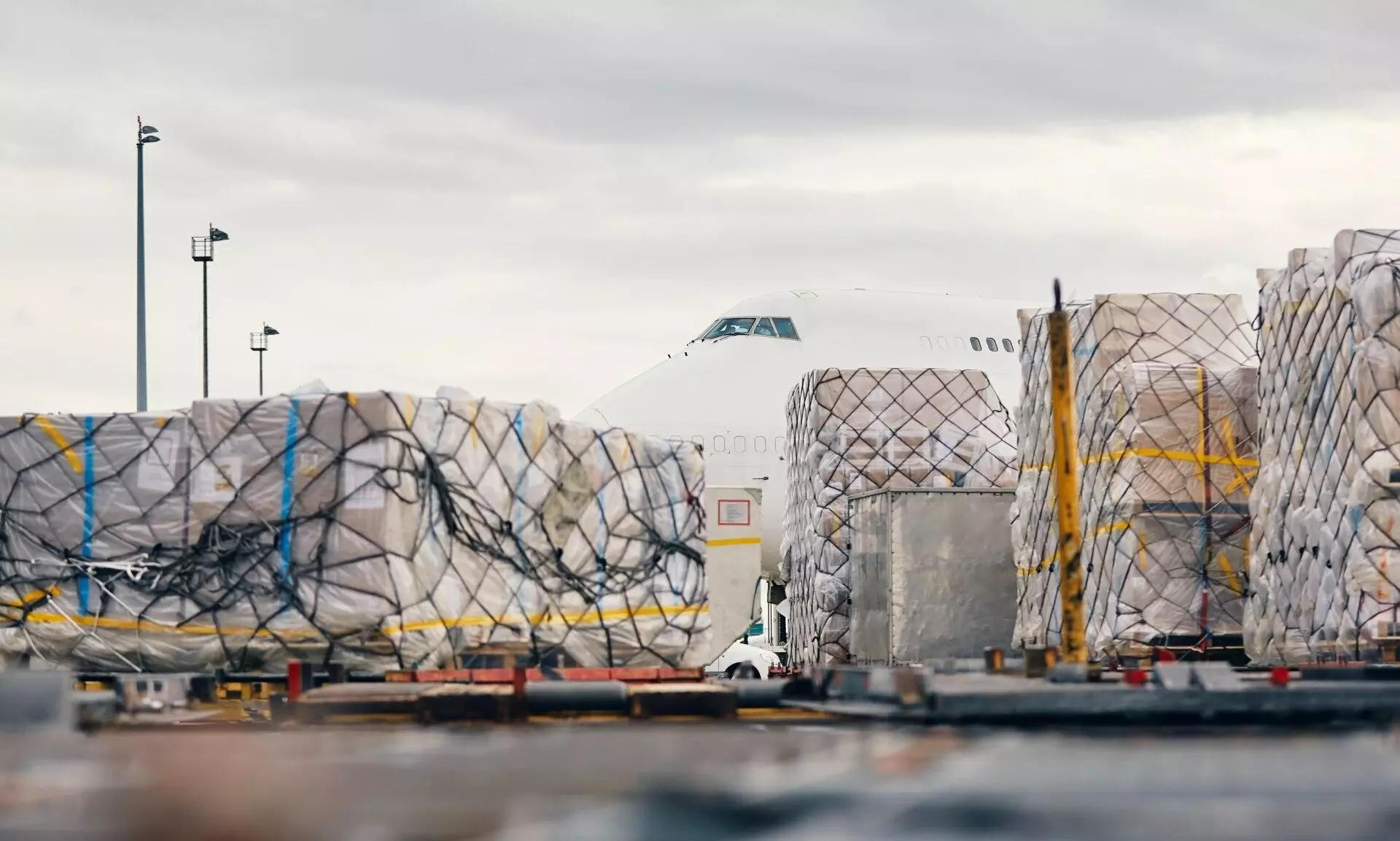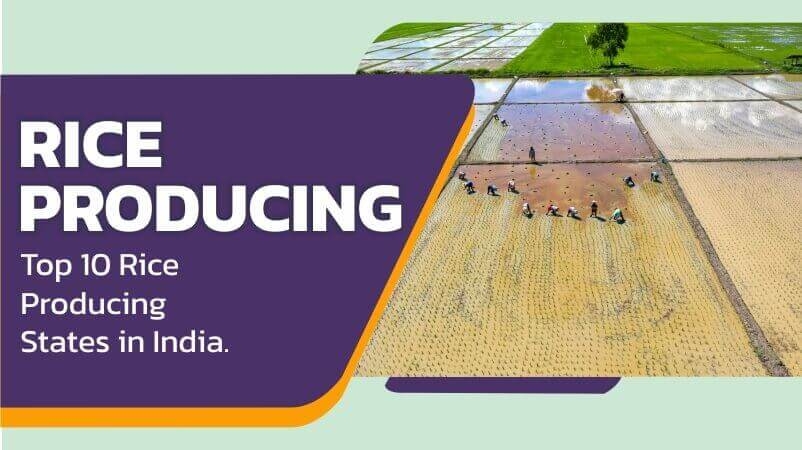Rice Production in India: A Staple for Millions
Rice is the staple food for 40% of the Indian population and is integral to Indian cuisine. Due to specific environmental factors, rice, the most popular and extensively consumed food in India, is as pure white as a diamond and just as nutritious as any other food. The scientific name for rice is Oryza Sativa, translating to “paddy rice.” This carb-heavy food is the main crop and an essential dietary component in every region of India.
Significance of Rice in India
India is one of the top producers of rice globally, ranking second after China. In the most recent fiscal year, India's rice production surpassed 100 million metric tonnes. This significant yield underscores the country’s pivotal role in the global rice market. The majority of the rice produced in India is basmati rice, a primary export good. India is thought to produce 4.25 million metric tonnes of basmati rice, approximately 75% of the global production. Notably, India exports two-thirds of its basmati rice production, with Iran, Saudi Arabia, the UK, and the US being major importers.
Major Rice Producing States in India
India's rice production is concentrated in several key states: West Bengal, Uttar Pradesh, Andhra Pradesh, Punjab, Tamil Nadu, Odisha, Bihar, and Chhattisgarh. These states account for about 72% of India’s total rice-growing land and produce more than 75% of the nation’s rice.
West Bengal
West Bengal is India's largest rice producer, with approximately 5 million hectares dedicated to rice cultivation, yielding over 15.7 million metric tonnes in the 2016 fiscal year. The state's substantial production ensures it remains a leading rice producer both nationally and globally.
Uttar Pradesh
Ranking second, Uttar Pradesh has over 5.9 million hectares under rice cultivation, producing more than 2,300 kilos per hectare. This state contributes over 13% of the nation’s rice output, making it a crucial player in India's rice industry.
Punjab
Punjab, the third-largest rice-producing state, yields over 12 million metric tonnes annually from 2.8 million hectares. Additionally, Punjab produces over 2 million tonnes of basmati rice each year, reinforcing its status as India’s leading basmati rice producer.
Andhra Pradesh
Andhra Pradesh, the fourth-largest producer, saw its rice production rise to 8.64 million metric tonnes in 2020, reflecting a significant annual growth rate. The state’s East Godavari, West Godavari, and Krishna districts are among the top rice-producing regions in India.
Tamil Nadu
Tamil Nadu is another major rice-producing state, cultivating rice on 2.2 million hectares. The state is known for producing various rice varieties, with significant production in districts like Tiruvarur, Thanjavur, and Nagapattinam.
Bihar
Bihar ranks sixth in rice production, leveraging modern technology to enhance yield and quality. The state produces different rice varieties seasonally, contributing significantly to the national output.
Chhattisgarh
Chhattisgarh, known as "India’s Rice Bowl," ranks seventh with 61 million metric tonnes. The state is renowned for its diversity in rice varieties, cultivating nearly 2000 types of rice plants.
Odisha
Odisha is the eighth-largest rice producer, with rice being the most significant crop, occupying 63% of the food grain area. Rice production improvements directly impact the state’s agricultural economy.
Kerala and Assam
Kerala and Assam also play pivotal roles in India’s rice production. Kerala's rice farming has seen a notable increase, particularly in Palakkad. Assam, known for its genetic diversity in rice cultivation, produces 45.16 lakh tonnes, securing its place among the top rice-producing states.
Conclusion
Rice is not just a staple food but also a cornerstone of India’s agricultural economy. The diverse climatic conditions and dedicated farming practices across various states ensure that India remains a top producer of this essential grain. The rice crop, specifically the rice plant Oryza Sativa, plays a vital role in sustaining the country's food security and economic stability. For more detailed information on rice production and agricultural practices, visit khetigaadi.com and explore the khetigaadi mobile application.
Rice Production in India: A Staple for Millions
Rice is the staple food for 40% of the Indian population and is integral to Indian cuisine. Due to specific environmental factors, rice, the most popular and extensively consumed food in India, is as pure white as a diamond and just as nutritious as any other food. The scientific name for rice is Oryza Sativa, translating to “paddy rice.” This carb-heavy food is the main crop and an essential dietary component in every region of India.
Significance of Rice in India
India is one of the top producers of rice globally, ranking second after China. In the most recent fiscal year, India's rice production surpassed 100 million metric tonnes. This significant yield underscores the country’s pivotal role in the global rice market. The majority of the rice produced in India is basmati rice, a primary export good. India is thought to produce 4.25 million metric tonnes of basmati rice, approximately 75% of the global production. Notably, India exports two-thirds of its basmati rice production, with Iran, Saudi Arabia, the UK, and the US being major importers.
Major Rice Producing States in India
India's rice production is concentrated in several key states: West Bengal, Uttar Pradesh, Andhra Pradesh, Punjab, Tamil Nadu, Odisha, Bihar, and Chhattisgarh. These states account for about 72% of India’s total rice-growing land and produce more than 75% of the nation’s rice.
West Bengal
West Bengal is India's largest rice producer, with approximately 5 million hectares dedicated to rice cultivation, yielding over 15.7 million metric tonnes in the 2016 fiscal year. The state's substantial production ensures it remains a leading rice producer both nationally and globally.
Uttar Pradesh
Ranking second, Uttar Pradesh has over 5.9 million hectares under rice cultivation, producing more than 2,300 kilos per hectare. This state contributes over 13% of the nation’s rice output, making it a crucial player in India's rice industry.
Punjab
Punjab, the third-largest rice-producing state, yields over 12 million metric tonnes annually from 2.8 million hectares. Additionally, Punjab produces over 2 million tonnes of basmati rice each year, reinforcing its status as India’s leading basmati rice producer.
Andhra Pradesh
Andhra Pradesh, the fourth-largest producer, saw its rice production rise to 8.64 million metric tonnes in 2020, reflecting a significant annual growth rate. The state’s East Godavari, West Godavari, and Krishna districts are among the top rice-producing regions in India.
Tamil Nadu
Tamil Nadu is another major rice-producing state, cultivating rice on 2.2 million hectares. The state is known for producing various rice varieties, with significant production in districts like Tiruvarur, Thanjavur, and Nagapattinam.
Bihar
Bihar ranks sixth in rice production, leveraging modern technology to enhance yield and quality. The state produces different rice varieties seasonally, contributing significantly to the national output.
Chhattisgarh
Chhattisgarh, known as "India’s Rice Bowl," ranks seventh with 61 million metric tonnes. The state is renowned for its diversity in rice varieties, cultivating nearly 2000 types of rice plants.
Odisha
Odisha is the eighth-largest rice producer, with rice being the most significant crop, occupying 63% of the food grain area. Rice production improvements directly impact the state’s agricultural economy.
Kerala and Assam
Kerala and Assam also play pivotal roles in India’s rice production. Kerala's rice farming has seen a notable increase, particularly in Palakkad. Assam, known for its genetic diversity in rice cultivation, produces 45.16 lakh tonnes, securing its place among the top rice-producing states.
Conclusion
Rice is not just a staple food but also a cornerstone of India’s agricultural economy. The diverse climatic conditions and dedicated farming practices across various states ensure that India remains a top producer of this essential grain. The rice crop, specifically the rice plant Oryza Sativa, plays a vital role in sustaining the country's food security and economic stability. For more detailed information on rice production and agricultural practices, visit khetigaadi.com and explore the khetigaadi mobile application.










